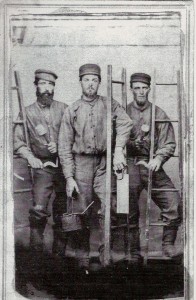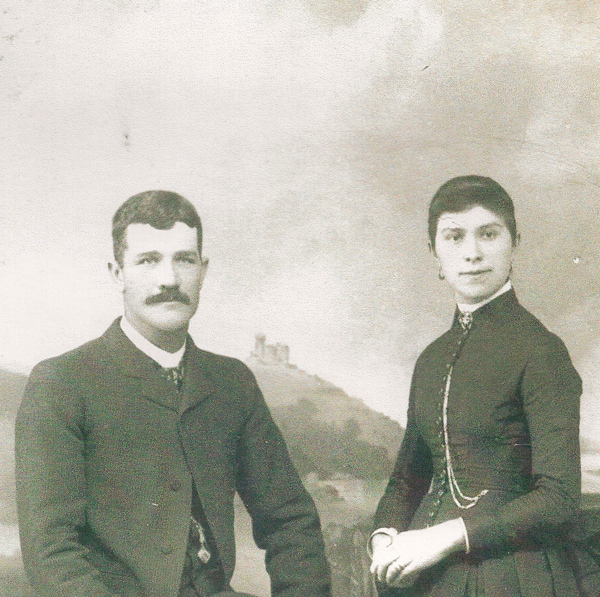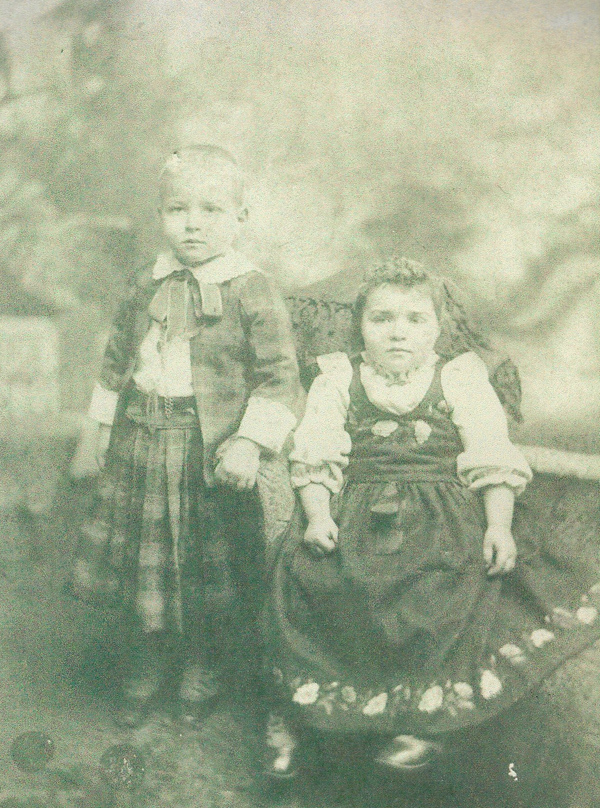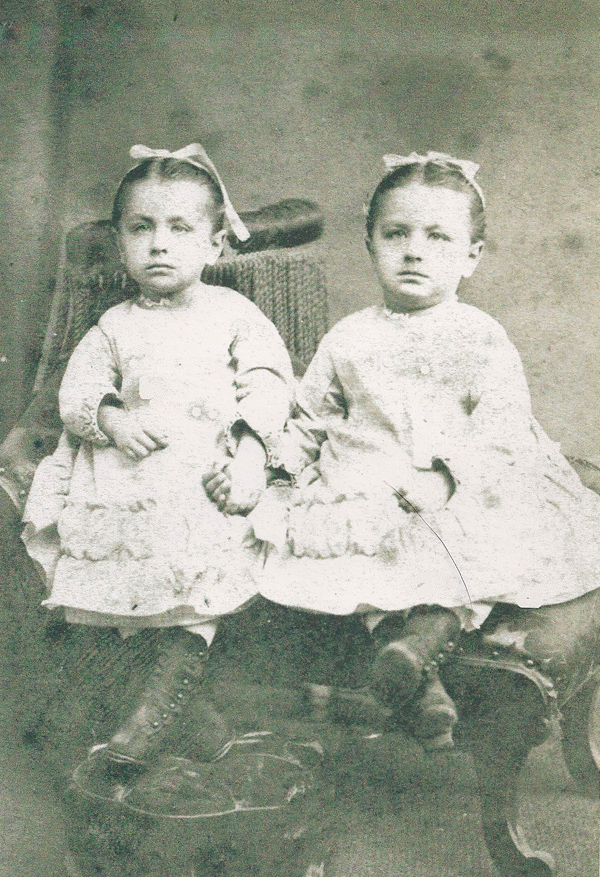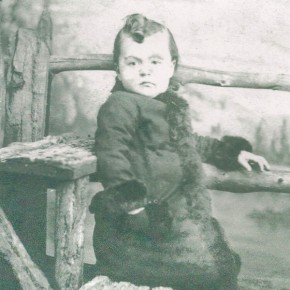MY YOUTHFUL INDISCRETIONS
BY ISAAC ALBÉNIZ
with a history of my adventures
in the United States
(Los indiscreciones de los años de mi juventud
con una historia de mis aventuras
en los Estados Unidos)
translated, annotated, and disambiguated
by A. I. Belasanczi, BA, MA, PDQ
* * *
Caminante, son tus huellas
Traveller, your own footsteps
Se hace el camino, y nada, más;
make the road, and nothing more;
caminante, no hay camino,
Traveller, there is no other road,
se hace camino al andar.
You make your own road as you advance.
Al andar se hace camino…
As you advance you make a road…
—Antonio Machado
* * *
UNO1
I emerged from my mother’s exhausted womb after a dilatory gestation of eleven months and fifteen days to begin my stroll toward Iberia, with an heir presumptive’s wave, a whistler’s insouciant greeting in the key of Db where I was destined to linger in later years, and a bow to acknowledge the mid-wife’s applause. I weighed eleven pounds and fifteen ounces, not a bouncing baby boy but a toddler on his way to glory as Spain’s greatest composer, arguably the greatest composer of the Iberian Peninsula, to trail in my wake—in good time more immediate than now seems credible—an astonishing if redundant catalogue of ladies, their ardor having inspired my prodigious feats at the keyboard as well as my youthful indiscretions. I did not wail soprano, pushing headward into the world; I strutted out singing a tenor’s clarion call on perfect pitch. Moreover, I would have rhythmed my proud gait with castanets and hammered rat-ta-tat with heels of steel against the floor of my exhausted mother’s birth canal had it been tiled, either in the plain and placid terra cotta tints that shelter us, or in one or another of the rococo patterns that drench our lives in spectrums of color to signify my Spanish heritage: I am a Roman, I am a Christian, I am a Jew, I am a Moor!
In Camprodón de Geroa, the morning air was fresh on May twenty-ninth in 1860.2
Expelled into the light by pirouetting there from the darkness where I had germinated like an orchid, slow to grow but then beautiful for a lengthy blossoming, I embraced the scents of saffron, bougainvillea, olive oil, my father’s rose pomade, open drains, garlic, mussels from the Mediterranean, sweat, and fresh bread, also the sounds of my busy town, the chapel of Santa Maria where bells rang out, the river ran under the arched viaduct, and the clattering beaks of our resident storks on every roof and chimney, stabbing the air with their syncopations. I welcomed the whinnying of horses below in the courtyard, the casual blasphemies which punctuated the folk songs that our domestic lackeys Joachim, Jóan, and Juan, crooned at their work, the high murmur of the market outside our wrought-iron gates, and the thin vocalise of my sister Clementina’s soprano, all preparatory to my breakfast assault on my exhausted mother’s swollen breasts. Even in the cozy cradle of my exhausted mother’s interiority, I had practiced scales against the placenta as well as my vocabulary against the echo chamber that her belly made.
“Enough exhaustion, Madrecita!” I cried, falling to, and rising up for air only long enough to congratulate her on my arrival. Papa stood nearby, twirling the little points of his moustachios. Rising up and down on the balls of his neat feet, to keep time with his latest suckling’s greedy suckling and watching his pocket-watch the while in some impatience. Big business at the town hall ceased during his absence and required inspiration borne of encouragement in the form of boots to backsides, little pinches to cheeks, and larger ones to bottoms. Stenographers laid aside their pens and took up their knitting needles, tatting bobbins, and web weavers to spin out lace mantillas. The lazy boys who polished the marble floors carried away the day’s debris from their overflowing canisters, and the trolley duennas who delivered cups of chocolate slumped asleep still standing up, but my papa was eager to return to oil the delicate mechanisms that kept the city percolating.
May twenty-ninth is a problematic day for saints, there being none to call upon for succor or inspiration but Joachim de Flora, the twelfth-century mystic who dreamed that angels libationed his wine in abundance while he danced with their daughters across La Via de Leche. When he had drunk his fill, between ethereal spinnings among the stars, they commiserated that he had not drained the goblet dry, for the final dregs would have rewarded him with the secret of life. When subsequently he fell short of his promise for perception, the papacy dismissed his weighty tomes that extolled the virtues of the Holy Ghost over the other two-thirds of the Trinity, suspecting him of heresy likely to encourage Protestants, Jews, Gypsies, Blackamoors, Muslims, Hindi, professional virgins, academics, secular royalty, and other pretenders to the Throne of God, all to mutinies against the sanctity of the Holy City of Rome. No matter: Saint Joachim de Flora—admittedly only an unofficial saint—is worthy to mark my day, for I am Terpsichore’s Second Coming at the keyboards of the world, with all gratitude to my parents who later lived very well indeed as a result of my prodigal gifts.3
My father, Ángel Albéniz from Vitoria, had married my mother, Dolores Pascual from Figueras, a virgin ripe at fifteen for motherhood. He was thirty, a government official doing astonishingly little but collect taxes from people who could ill-afford to pay them, in exchange for the substantial income that kept his considerable brood in French laces and brocades, silks from China, woven woolens from Catalan sheep, eiderdowns from Baltic ducks and cashmeres from Indian goats, and himself in Harris tweeds from Inverness—where I would one day triumph before dour Scotsmen—befitting government officials for doing so astonishingly little. Spain at the time was ruled by Isabella II, a lady given to hot pursuits of extracurricular consorts, and her governing board was overrun with a nouveau riche in search of respectability associated with the church and crown that squatted in tandem on us. Below that relatively small clique of cultural aspirants, of which my proud padre was a charter member, a sprawling army of ill-paid flunkeys toadied at several occupations to make the ends of their frayed livelihoods meet, while junior lieutenants in the Queen’s military units labored variously in the moonlight: as waiters in cantinas or as clergy vergers who flushed the drains and hauled the rubbish of the town after performing similar chores for the holy fathers they served. As for Spain’s tillers of the soil, having no access to alternate employment, they starved until their crops came in, living off the land as best they could, begging in front of cathedrals when they could not, and trading off a goat here, a daughter there, for sufficient coin to see them through the season.
But I knew nothing of such inequities, scarcely dry from my protracted belly bath. I only drew in lungsful of Spain’s clear air when I arrived to take my place as the youngest member of the house of Albéniz y Pascual, destined to be its most important member, destined indeed for an earthly immortality to be reckoned with.4
Four siblings preceded me in a musical brood: Enriquetta, Marco, Clementina, and Blanca—como se dice stair-steps? pasos de escalera—at six, five, four, and three when I joined them. Clementina, whose singing I have already remarked, although I might add that she soon compensated for the limitations of her range—she was a contralto without top or bottom but an impressive four-note middle from an E to a B by turning to several noble orchestral instruments, on which she subsequently grew moderately proficient. However, she grew, too, into a mean-spirited spinster who inherited our father’s paunch and his acumen in directing underlings as well as my own career once upon a time, not without misstepping the fandangos of his aspirations.
My poor brother Marco lacked the courage to learn to write or count or read or wipe his bum. He spent his days instead admiring the gardeners’ efforts that graced the grounds of our hacienda, one of God’s minions, drooling into space when he was not smiling at the cork trees and absently fingering his flute.
Blanca aspired first to operetta to trill in zarzuelas, and, failing that, to become a bride of Christ as Sister Consumción de las Canciónes.
Enriquetta was eldest, here listed last, I suppose, because she left us first to harmonize with the Heavenly Host.
I was named Isaac, in honor of the Jews who undulated into Spain from the East, embracing Holy Church to avoid the rigors of the rack during the Inquisition. One of them was instrumental in persuading the Albéniz family to trade its semitic buzz that concluded our family name.5
The speech impediment which had so sorely afflicted some now-forgotten monarch—according to the aspersive legend burnished by years of cultivated supposition—that the country, in a single wave of affection, adopted it. By the time of my advent, for example, thaffron thented our rithe, my eldeth thithter’th thoprano thplit the thilenth in our Thpanith houthhold, and our family name wath forever altered to Albénith, joining the reth of the country in lithping ith way through hithory.
As for my musical ancestors, there may have been two of them, although in truth Albéniz is Castillian, and my family is Catalan, and torn between the two I have always considered myself Moorish, a glamorous and dangerous badge of identity to describe one’s roots to concert-goers more interested in my music than in my geography, confusing the subtle interstices of Iberia with the waves of the Spanish mien. One of my improbable progenitors was an uncle, Pedro Albéniz,6 court organist in Madrid until his pipes failed five years before my birth, left as his legacy to Spain an avant-garde approach to playing that employed double flats enunciated with single digits, thereby freeing other of his fingers to render thickened chords and denser harmonies than a more aenemic polyphony had encouraged. Don Alvaro Narciso Hernando Pirelli—the cathedral’s estimable cardinal—was not at first pleased with Tio Pedro’s musical audacity since it suggested scriptural infelicity. A coterie of parishioners, including the Infanta Eulalia-Irene, however, endorsed it with substantial contributions, and he changed his mind.
Following Uncle Pedro’s presence at the triple manuals in the Cathedral of Clemenza, sending echoes of his transfigurations to its Mauro-Hispanic rafters, our antecedental Matteo Albéniz,7 a pragmatic Jewish monk who had long before known which side of his matzoh was buttered. He composed cantatas for Christmas celebrations, masses for Sunday services, and ditties redolent of Spanish earth to accompany sherry and tapas before confession and the evening meal in his monastery at San Sebastian.
I was named Isaac Mañuel Francisco Albéniz y Pascual. The center names—added only at the altar when one or another of the holy fathers there sprinkled me against the ennui promised us in Limbo—were in honor of my grandfathers. Francisco Pascual fashioned corks for wine, and Mañuel Albéniz preceded his son—my father—in thrall to the arbitrary machinations of the laws that governed Spain. I knew neither of them, Gigantepapa Francisco having drunk himself to death some years before on the plentiful supply of wine offered him by impecunious grape growers in lieu of payment, and Gigantepapa Mañuel having run to fat at an early age and dying in flagrante delicto in the arms of Ritiña Monterey, a flamenco dancer of his passing acquaintance.
And that is a sufficient history of my progenitors prior to this more fascinating account of Spain’s greatest composer, arguably the greatest composer of the Iberian Peninsula, as I have already identified myself in pardonable pride, although there is sometimes wisdom in singing refrains twice over to set them clearly in the head of potential admirers.
I stepped upon the stage which I was soon to conquer on una noche oscura y tempestuosa.8
Before the hour when curtains rise for performances to commence—perhaps it is only in Spain where dark and stormy nights occur with mathematical regularity—poor Dolores Pascual, mi madre, drained and, as I have observed more than once, exhausted, grew weary of my fists against her fallen udders as I first emptied them and demanded further draughts to stave off hunger. Ángel, my father, living up to his name, carried me afoot—because all the horses were spooked by the weather into unrousable somnolence—and wrapped in his predominately purple cloak, to a wet nurse of his acquaintance, capable of satisfying my appetite.
Doña Felicia Novenido, who lived over a cantina at the wrong end of town, was thirty-five, the mother of a dozen children and, at the time, between deliveries and therefore available and well supplied to slake my considerable thirst. She was, I have been told, alarmed to discover that my eleven pounds and fifteen ounces had already increased in the space of an hour or two at my mother’s bosom.
“Dios mio!” she cried as I latched on for a late-night snack before settling down to sleep. In the morning, Doña Felicia gave me breakfast too, feeding her own brood burnt porridge and a hasty splash of milk from the goat grazing in the debris behind the cantina, all in exchange for Papa’s ducats. After several meals born of her efforts, abetted by those of my mother—by then recovered and back into her whalebones and mantillas—I weighed in at fifteen pounds and eleven ounces and had begun tapping out the rhythms of a jota, a fandango, or a doloretes, depending upon the time of day, against the wooden walls of my cradle.
When I was not yet two years old, Papa was elevated in station and ascended from the relative obscurity of Camprodón to Barcelona, with a substantial increase in income at the expense of slaveys, clerks, and foot soldiers put out to early retirement without pension. In celebration, my father bought a pianoforte for Clementina. She had by that time graduated from scales to songs in the latest zarzuelas and pleasured herself with florid accompaniments. They sent me into such a frenzy of delight that I edged her from the piano stool with a rude rotation of my hips, took her place before the rosewood case and the polished ivory and ebony keys, illuminated by my mother’s silver candlelabra on either side, and spelled out an habañera of such extravagant complexity that Clementina burst into tears of jealousy, then swallowed her pride and took it upon herself to give me lessons.
When I was three years old—blessed all too apparently with a phonographic ear that could reproduce at the pianoforte whatever it heard—I entertained my parents’ guests after dinner with an alphabet of improvisations on familiar melodies, from Bach to Schumann, pausing en route for Mozart, with an encore by Franz Liszt, always Liszt from the time I cut my baby teeth on his La Campanella. What nobler composition could have challenged my chubby fingers, yet unable to reach beyond a fifth? Nevertheless, they embraced such difficulties as they could. In between these neonatal efforts my father—single-minded to encourage me—insisted that I sleep with weights dependent from my fingers, laces of chamois twined around and tied to lead soldiers that dangled on either side all night. With my arms fast-bound to the walls of my crib, my fingers felt the air, and when they moved, during my fretful sleep, battles raged in space among the Lilliputian troops. My father was somewhat overzealous, I hazard, in his zeal to produce an aesthetic rather than a mercenary breadwinner in the family.
When I was four years old, I gave my first recital, at the Teatro Roméa in Barcelona, where the posters out in front announced a program likely to prove a challenge to pianists of considerably greater age and maturity than mine. Bowing to the audience with an apologetic smile, my proud father carried me on stage, sitting me high atop a stool on heavily brocaded pillows, my tiny trotters far above the pedals of the pianoforte. Then, acknowledging my auditors with a bounce of my ebony curls, I attacked Dussek’s Les Adipeux and a Weber concerto, afterwards as an encore improvising my own variations on a familiar theme by Franz Liszt, El sueno de amor.9
I took my bow amid the cries of appreciation, shouts of doubting auditors assailed the coral shells of my little ears until my eyebrows ascended, my lower lip depended, and my tear ducts opened to flood my cheeks. Audiences suspected some trick, probably a player sequestered in shadows at another keyboard behind the three-panelled screen of lattice draped with roseated shawls, framing me onstage, so I wrenched the wretched screen from its moorings to unveil the empty space between me and the cobwebbed slabs of Spanish stone of the back wall, bit my thumb in a rude gesture at my cruel skeptics, and ran them a cadenza of such brilliance—up and down the keyboard with the speed of hummingbirds’ wings and the glitter of a dowager’s diamonds—that they crossed themselves in reverent approbation. Some fell to their knees. One of the ushers fainted.
“Bravo!”
“Bravithimo!”
“Bravolito!”
“Barthelona thalute!”
“Encore, Ithaqui!”
“Encore, Ithaquithito!”
“Viva El Niño Prodigio de España!”
“Viva El Prodigitito del Mundo!”
I played no more that night. In my dove-gray satin suit, scored across my pigeon’s breast with a red and purple sash, my midnight curls bouncing on my swaggering shoulders, I skipped into the wings to cuddle in my mother’s arms, to accept with more than a modicum of diffidence my father’s pride, and to relieve the manager of a hefty fee.
At four—my lisp perfected to the voice of our fallen monarch whose speech may have so impaired fashion forever after—I was taken up as the city’s mascot with engagements before this titled family and that minor royalty, as well as in more than one vaudeville house featuring low comedians whose humor lay in contests of flatulence, tumbling twins who allez-ooped their circular demonstrations, whole families of acrobats, unicyclists, a stout soprano with several parrots who spread their wings at high notes and fanned the air in time to her vibrato, dwarfs who yodeled while standing on each other’s heads, and ladies of the evening who dropped their mantillas inch by inch to the sweaty beat of stilettoed heels and nervous castanets.
Soon enough, at subsequent performances, I had been elevated from the bottom of this tawdry bill to the close of the first half of it when el estrelito always appeared, just before la interrupcion. By that time Albénith was as familiar a name as, let us admit with arguable accuracy, Miguel de Thervanteth.
—
Notes:
1. To preserve a degree of authenticity, some words and phrases have been retained in Spanish on occasion, although in some cases they have been preserved because they have proven untranslatable. At other times, Albéniz’s idiomatic refractions of phrase have encouraged the translator to approximate them in his insecure Spanish from his own English. The chapter numbers that he has rendered in Spanish, for example, reflect Albéniz’s early training in the language of Iberia and contribute, perhaps, an ocular note of authenticity for the reader. [back]
2. According to the estimable Grove’s Dictionary of Music, apparently drawing on H. J. Storer’s insignificant monograph devoted to Albéniz in The Musician, May 1916, Isaac Manuel Francisco Albéniz was born on 29 May 1860. Dr. Isabel Zancia, who has devoted rather more time to the subject of Albéniz’s birth than anyone else, has complexitized the date, concluding that social imbrications suggest he was born on 31 May 1859, largely because a male infant, identified in the record as “I. A.” was baptized at Santa Maria Cathedral at Camprodón on that day. Since Shakespeare—traditionally born on 23 April 1564—was baptized three days later, on 26 April 1564, Dr. Zancia has reasoned, so must Albéniz have been baptized three days later, on 3 June 1859. If so, however, the records in the Santa Maria would suggest that Albéniz’s parents were somewhat premature, either three months or nearly a year prior to his conception. There are records of course of generations of the faithful who had appropriate parts of their bodies anointed by the holy fathers in advance of conception to encourage fertility. [back]
3. Albéniz neglects mention of the autotelic St. Mary Magdalen dei Pazzi (1506–1607), the Florentine mystic who found her vocation in prayer to overcome inwardly carnal trials of the flesh, and St. Generosa de la Siléncia (1414–1437), whose holy orders prohibited both speech and sound. Perhaps Albéniz ignored them deliberately because of their inapplicability to his especial talents. He might have mentioned, too, the coincidence of his calendar on June second—the day of Albéniz’s christening—St. Nicholas the Pilgrim (?–1094), the Greek shepherd boy who sang compulsively but only the Kyrie Eleison to his woolen charges between long holidays in an Athens asylum for the insane where those religiously smitten were sometimes incarcerated. Despite Dr. Isabel Zancia’s extraordinarily inventive defense of 1859 as a more felicitous year for Albéniz’s birth and baptism (see footnote 2) June 2, 1860, suggests itself more readily, at least as a musical appendage to his biography, because on that day the already celebrated young Madridian mezzo, who by dint of tonal cultivation through diet had become, by the age of sixteen, the reigning coloratura soprano of the period. Adelina Patti (1843–1919) was between tours and visiting her elder sister Carlotta (1840–1889), also an established soprano at the time, in Comprodón de Genoa. In every likelihood they would have joined the choir that holy morning to sing in honor of the latest and youngest congregant, Mas cerca de mi Dios a Tu. This new hymn, by the English actress and Unitarian Sara Flower Adams set to the air Bethany, attributed to Lowell Mason, had proven so popular that it was taken up by virtually every religious sect on both sides of the Atlantic Ocean and incorporated even into the Roman Catholic mass, with the tacit though silent approval of the Blessed Pius IX, who was rumored to have been heard to be humming it during his matutinal ablutions. Sir Arthur Sullivan’s (1843–1900) more familiar setting for the poem antedated the birth of the composer by several years. Subsequently it proved to be appropriate for the American soprano, Jeannette MacDonald (1899–1957) to memorialize an earthquake in San Francisco in 1906, and for a massed male choir to observe in some spiritual sobriety the sinking of the Titanic in 1912. Although Albéniz does not refer to the hymn by name in his memoirs, he relied with sufficient regularity on the Protestant hymnals of the period for his spontaneous and extemporaneous variations on traditionally familiar or currently popular tunes, for this translator to note the likelihood of his having employed Nearer My God to Thee as well. There is no evidence that Albéniz ever met Adelina Patti, but she preceded him by a season at Horace Tabor’s Opera House in Leadville, Colorado. [back]
4. Albéniz’s penchant for dangling participles may reflect the insouciance of his music, adding to his compositions a daring informality at the time he wrote them, although a dissymetrical intertextuality may suggest itself by too close an articulatable manifestation of this phenomenon in his music. Dr. Isabel Zancia, formerly on the faculty of the University of Barcelona and at last listing in the PMLA Directory an adjunct faculty member at the Community College in Euphoria, Kansas, however, whose research into various fields includes nineteenth-century pedagogy, marked the infelicity to reflect Albéniz’s woefully neglected education, her inferential cognate resting on a network of tenacular roots in his prose, although her seeming preoccupation with the ortheopy with which she sometimes might be unnecessarily involved may serve deleteriously her pursuit of cognitional extrapolatory readings that rely perhaps too generously on Latinate constructions in defense of her distinction between Spanish and Catalan. [back]
5. According to the Dunlap-Oppenheimer Research Institute, there is a linguistic case to be made for the devoiced sibilant and the substitution of the inter-dental fricative, predicated not on some monarch’s speech impediment but on the fact that th was represented by c and z prior to the conclusion of the fifteenth century. At that time, c with a cedilla was pronounced ts, while z was pronounced dz. Fifty years later, all sibilants were devoiced, both ts and dz, being subsequently pronounced ts. By the middle of the seventeenth century, in southern Spain, ts merged with s, rendering s and z pronunciations interchangeable. In northern Spain, however, ts lost its sibilance to become th, while s remained a distinct sound of its own. Latin American Spanish abjured th in favor of s because the majority of settlers emigrated from southern Spain. Little credence is now given to the explanation that the early Catalan operatic contralto, Sibilla de la Voce y Lagramissia, who employed a fanatic claque of rowdy boys—popularly known as the Sibillants—in attendance at every performance, was bludgeoned to death on stage by a jealous rival, now forgotten along with the monarch whose lisp challenged her claim to linguistic immortality. One member of the claque—all of whom sang regularly in the Coro de los Niños de Barcelona—forerunner of the celebrated Vienna Boys’ Choir—vowed to carry on Sibilla de la Voce’s tradition by singing her roles himself. The young man, felicitously named Pajaro Cantor, was therefore obliged to undergo a heroic operation to maintain his pre-pubertal singing range, which operation became known as “the Devoicing of the Sibillant.” In homage to his sacrifice, Spain is believed by some to have embraced his childish lisp, still intacto virgo when he died both in body and in voice. It was then held in general currency that the brave young Spaniard had anticipated the first Italian castrato by more than a century. There is further supporting though questionable evidence of this allegation in the colloquia, “Castillian Second Person Dual-th and Andalusian Second Person-th: an Analogical Epistrophe,” by Dr. Isabel Zancia, chair, in the international linguists’ journal, Shields: Southeast European Language Evolution, VI.2, summer 1967. [back]
6. Pedro Albéniz y Basante (1795–1855) [back]
7. Matteo Antonio Perez de Albéniz (1755–?) [back]
8. It seems likely that Albéniz actually intended to suggest “cerrada”—rather than “oscura”—although, from an idiomatic point of view, “figura de sinistera” might more closely approximate the implications in the phrase originated—according to tradition if not to verification by the present editor whose explorations into fiction have not included his novels—by Edward Bulwer-Lytton (1803–1873) in one of his influential narratives as “a dark and stormy night.” The novels were noted for their philosophical though sometimes satiric commentary, apparent through a semiotic deconstruction of their narrativasional observations. Similarly, Bulwer-Lytton may have intended to suggest “tormentosa” rather than “tempestuosa,” in which instance the intertextual sublimations to the cultural influences on Albéniz, then in fashion in Spain, might prove questionable in their application to him. [back]
9. There is some disagreement among scholars over the actual program of this first recital. Albéniz is unclear: either he played Franz Dussek’s Les Adieux (The Goodbyes) or Ladislaus Dussek’s Les Adipeux (The Fatties). His handwriting is not always decipherable, his spelling is often cavalier, and his misassignment of composer or composition is not impossible. There is general concession that he played Carl Maria von Weber’s Concertstücke in F. Doubtless, Albéniz added something by Franz Liszt whose work was to become an inevitable touchstone to conclude his recitals for several years, under its lugubrious title in musical Esperanto, Liebestraum. Binary constructs notwithstanding, this suggests an early spiritual exploration coterminous with the ineffable ethnicity of music growing from the composer’s heritage: Liszt’s in Hungary, Albéniz’s in Spain, in the metaphysical analogues of Albéniz’s subsequent compositions. One contemporary account of this first recital—that the young pianist was afterwards pelted with roses, which he welcomed, and with coin, which he would have welcomed had they not stung his skin on contact—cannot be verified. [back]

